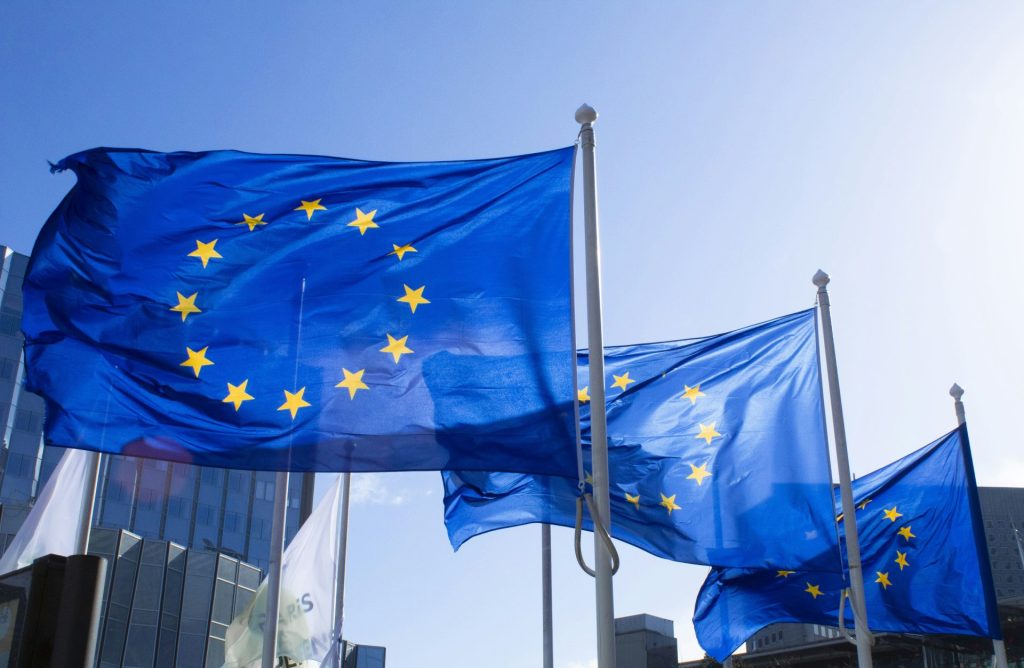European Union Unveils Landmark Artificial Intelligence Act

Groundbreaking Regulation Sets Global Standard
In a historic move, the European Union (EU) has given its final approval to a pioneering legislation that standardises regulations concerning artificial intelligence (AI) globally.
The monumental decision, marking the culmination of extensive deliberations, heralds the advent of the Artificial Intelligence Act, a legislative flagship endeavouring to establish a uniform framework for AI governance.
The Act’s unique ‘risk-based’ approach ensures that regulatory measures are proportionate to the potential societal harm posed by AI applications, instilling a sense of security in the audience.
As the first legislation worldwide, the AI Act’s influence transcends the European Union’s borders, potentially setting a global standard for AI regulation.
The primary aim of the newly enacted law is to foster an environment that promotes the development and adoption of safe and reliable AI systems across the EU’s single market, involving actors from both public and private sectors.
Concurrently, the legislation prioritises the safeguarding of fundamental rights of EU citizens while fostering an atmosphere conducive to investment and innovation in AI within Europe.
Notably, the AI Act’s scope is confined to areas within the ambit of EU law, with exemptions carved out for systems exclusively dedicated to military, defence, and research endeavours.
Proactive Stance
Adopting the AI Act marks a watershed moment for the European Union, underscoring its proactive stance in addressing the challenges of emergent technologies while harnessing their potential to propel societal and economic progress.

By championing the values of trust, transparency, and accountability, Europe reaffirms its commitment to navigating the transformative landscape of technological advancement while nurturing an environment where innovation can thrive.
Mathieu Michel, Belgian Secretary of State for Digitisation, Administrative Simplification, Privacy Protection, and Building Regulation, hailed the enactment of the AI Act as a pivotal milestone in Europe’s digital evolution.
Classifying AI systems based on risk assessment is central to the AI Act’s regulatory framework.
Low-risk AI systems are subject to minimal transparency obligations, whereas high-risk counterparts must adhere to stringent requirements to secure access to the EU market.
Notably, the EU’s jurisdiction prohibits AI applications that pose an unacceptable risk, such as those involving cognitive behavioural manipulation and social scoring. Moreover, the legislation expressly forbids the utilisation of AI for predictive policing predicated on profiling and the discriminatory categorisation of individuals based on attributes like race, religion, or sexual orientation.
General-Purpose AI
The AI Act addresses the deployment of General-Purpose AI (GPAI) models and imposes varying degrees of regulatory scrutiny based on the systemic risks posed by such applications. While GPAI models deemed non-threatening are subject to limited transparency requirements, those carrying systemic implications are subject to more stringent regulatory oversight.
New Governance Architecture
To ensure the effective enforcement of regulatory provisions, the AI Act institutes a robust governance framework comprising multiple oversight bodies:
- An AI Office within the EU tasked with enforcing uniform regulations across the EU.
- A scientific panel comprising independent experts will furnish support for enforcement activities.
- An AI Board comprising representatives from member states to offer counsel and assistance in ensuring consistent and effective implementation of the AI Act.
- An advisory forum for stakeholders to provide technical expertise to the AI Board and the EU.
Penalties And Protections
The AI Act institutes penalties commensurate with the severity of infractions. Fines are calculated as a percentage of the offending company’s global annual turnover or a predetermined amount, whichever is higher. Notably, SMEs and startups are subject to proportional administrative penalties.
The legislation emphasises transparency and the protection of fundamental rights. It mandates a rigorous assessment of high-risk AI systems’ societal impact before deployment in public service domains. Additionally, enhanced transparency measures are prescribed to ensure accountability in developing and utilising high-risk AI systems.
Supporting Innovation
To foster an innovation-friendly milieu, the AI Act envisages the establishment of AI regulatory sandboxes, providing a controlled environment for developing, testing, and validating innovative AI systems. Furthermore, provisions are made for testing innovative AI applications in real-world scenarios, facilitating evidence-based regulatory learning.
Next Steps
Following endorsement by the European Parliament and EU presidents, the legislative act is slated for publication in the EU’s official journal, heralding its imminent entry into force.
Scheduled to take effect two years after its enactment, the AI Act is poised to usher in a new era of AI governance characterised by adherence to fundamental rights and regulatory coherence.
The AI Act is a cornerstone of the EU’s strategic vision for fostering the responsible development and uptake of AI technologies across its single market.
Spearheaded by Commissioner for Internal Market Thierry Breton and shepherded through the European Parliament by rapporteurs Brando Benifei and Dragoş Tudorache, its enactment signifies Europe’s commitment to charting a course towards a technologically empowered future, guided by principles of ethics, transparency, and societal well-being.
Featured image: Commissioner for Internal Market Thierry Breton spearheaded the AI Act. Credit: EU













